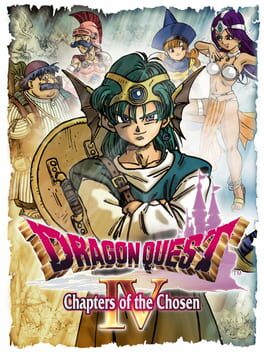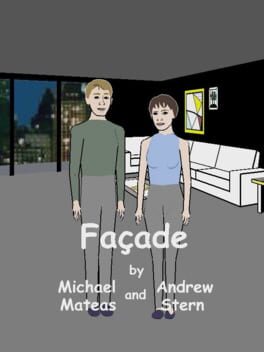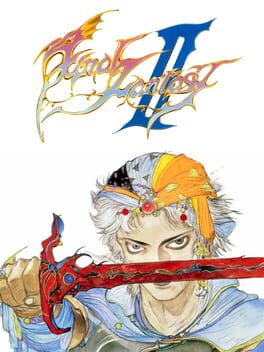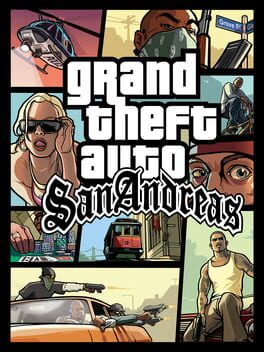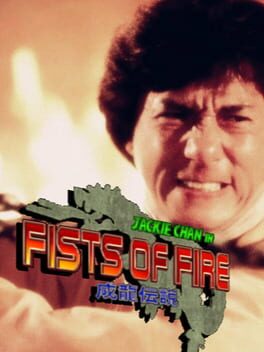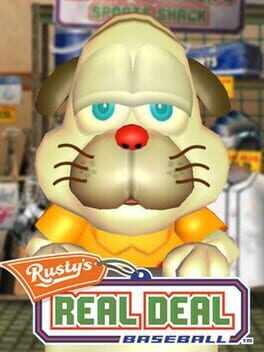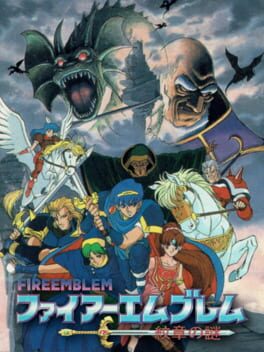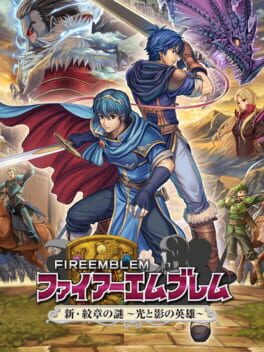jabronistomper
211 reviews liked by jabronistomper
Whenever I found myself disappointed that Dragon Quest IV wasn’t taking its most interesting ideas very far, I had to stop and remind myself that I’m actually playing an NES game, and in that context it does feel remarkable. As much as the series would become known for playing it safe and sticking to its traditional conventions, at this point that’s not quite as true as it will be in twenty years. Surely the aesthetics are locked in, and the core interface is basically solved, but the format is still being played with in these NES era Dragon Quests. That first game is so revolutionary that iterations on its formula in all future RPGs make it feel fresh even today, 2 is a sprawling sequel in all the wrong ways, and 3 refines that approach to world exploration while adopting a diverse class system and the series staple episodic town story format. Dragon Quest IV’s innovations may be deceptive at first because they’re not gameplay-centric, more focused on stretching the limits of presentation on the NES. It definitely feels like a game where, having kind of done everything there is to do and conquered the world with the third one, now we’re just stretching our legs, getting playful, and a little bit more experimental in ways that are as fun as they are underwhelming at times. Regardless, keeping in mind through the shiny coat of paint and user-friendliness of the DS remake that this game came out in 1990 helps me swallow that disappointment even as that’s my primary vibe a lot of the time playing it.
Most of that feeling comes courtesy of this game’s big hook and, uh, name, is its chapter-based structure, where roughly the first half of the game is broken into four chapters that chronicle the adventures of your nameless Hero Character’s JRPG party as they pursue the personal missions that lead them to cross paths with you and join up when you finally take control of the main kid in chapter five. This is a novel concept, one that I wish had inspired other things more directly. This is the kind of idea that I feel should be brazenly stolen rather than referenced as a cool thing that one venerable beloved thing did. It’s pretty sick and IMPORTANTLY I don’t think it’s really taken advantage of as an idea.
There’s a degree to which this eases you into the game, starting you with a character who is really tanky with no access to magic and an optionally recruitable heal guy, chapter two giving you a balanced party, and chapter four skewing you heavily towards squishy mage characters against the toughest enemies yet (I’ll get back around to chapter 3). Each of these mini-adventures is fun, and cute, and they do a fun job of introducing you to various parts of the world and previews of their problems and cultures before you’ll eventually get the chance to really address them and visit them in the interconnected way that previous DQ games have, and watching that world map stitch itself together as you go through chapter 5 is genuinely special in a way I’m not sure any other game can replicate exactly. They do go on maybe a little bit too long, and starting every character flatly at level 1 in each scenario does tune things a little needlessly grindy in a series that hasn’t had any problem being breezy before now but has the dark cloud runtimes of games like DQ7 and 11 looming ever nearer.
The real issue I take with these chapters, however, is that they feel like wasted opportunities, largely because chapter 3 is such a unique standout compared to the rest. In chapter 3 you play as Torneko, a middle-aged merchant guy who has inexplicably become a mascot for the series and the star of the first ever Mystery Dungeon game, as he works at his small town’s weapons shop and dreams of one day opening his own. There IS a pretty normal DQ adventure here, sort of, but there’s not really an enemy you’re driving to defeat or a primary antagonist, and I spent a lot of time at the top of this chapter working at the shop for money. Guys come in and say hey will you sell me this item and I say yeah of course. Sometimes they come in and sell me a crossbow just like I’ve done a million times in these games, and I give them a good price. Sometimes a guy will come in and sell a REALLY nice sword and if I can afford it from my meager earning’s I’ll buy that and equip it myself to eliminate the need for the grind if I can, seeing as Torneko is not really a combat guy. He can inspect items though and appraise their value, maybe squeeze a few more coins out of them than they’re worth.
Because that’s his whole thing, while you are still diving through dungeons and stuff you’re doing it in service of raising funds to rent space for your storefront, to loot nice weapons and armor to fulfill an order, to stock your new store well enough to raise enough money to repair an important tunnel. The true final boss of the chapter is Getting Sixty Thousand Dollars. It’s rudimentary, as it necessarily had to be given the hardware the original version of the game was developed for, but it does succeed at playing out like an extremely prototypical version of the burgeoning item shop RPG genre, with a flavor unlike anything else in the game. It made it feel really weird that none of the other warmup chapters took the opportunity to try stuff like that; Ragnar is an important knight in active military service, but his mission puts him in a position to behave like a normal JRPG guy. Meena and Maya are professional performers, a fortuneteller and a famous dancer, who are seeking revenge for the murder of their father and their quest makes them cross some dangerous and important people, but they never try to use their professional credits to go undercover and get close to anyone of something; there’s no element of the context of their lives that plays into their story, we’re just told these things about them and then do a JRPG adventure with them for a few hours before we switch over to the main game.
It’s hard to hold these things against the game too much because as I’ve mentioned I do understand that I may be asking for a lot of complexity from a game that was probably already pushing at the seams of its hardware, and beyond that this is just a fun game. Everything that’s good about the writing and presentation in Dragon Quest 3 is still good here, better even a lot of the time. There are more creative puzzles and there’s better dungeon variety. So the fact that I spent this whole thing moaning shouldn’t indicate that I didn’t have a good time, only that I’m mourning the much more interesting game I got a brief taste of here that, to my knowledge, this series would never approach again.
Most of that feeling comes courtesy of this game’s big hook and, uh, name, is its chapter-based structure, where roughly the first half of the game is broken into four chapters that chronicle the adventures of your nameless Hero Character’s JRPG party as they pursue the personal missions that lead them to cross paths with you and join up when you finally take control of the main kid in chapter five. This is a novel concept, one that I wish had inspired other things more directly. This is the kind of idea that I feel should be brazenly stolen rather than referenced as a cool thing that one venerable beloved thing did. It’s pretty sick and IMPORTANTLY I don’t think it’s really taken advantage of as an idea.
There’s a degree to which this eases you into the game, starting you with a character who is really tanky with no access to magic and an optionally recruitable heal guy, chapter two giving you a balanced party, and chapter four skewing you heavily towards squishy mage characters against the toughest enemies yet (I’ll get back around to chapter 3). Each of these mini-adventures is fun, and cute, and they do a fun job of introducing you to various parts of the world and previews of their problems and cultures before you’ll eventually get the chance to really address them and visit them in the interconnected way that previous DQ games have, and watching that world map stitch itself together as you go through chapter 5 is genuinely special in a way I’m not sure any other game can replicate exactly. They do go on maybe a little bit too long, and starting every character flatly at level 1 in each scenario does tune things a little needlessly grindy in a series that hasn’t had any problem being breezy before now but has the dark cloud runtimes of games like DQ7 and 11 looming ever nearer.
The real issue I take with these chapters, however, is that they feel like wasted opportunities, largely because chapter 3 is such a unique standout compared to the rest. In chapter 3 you play as Torneko, a middle-aged merchant guy who has inexplicably become a mascot for the series and the star of the first ever Mystery Dungeon game, as he works at his small town’s weapons shop and dreams of one day opening his own. There IS a pretty normal DQ adventure here, sort of, but there’s not really an enemy you’re driving to defeat or a primary antagonist, and I spent a lot of time at the top of this chapter working at the shop for money. Guys come in and say hey will you sell me this item and I say yeah of course. Sometimes they come in and sell me a crossbow just like I’ve done a million times in these games, and I give them a good price. Sometimes a guy will come in and sell a REALLY nice sword and if I can afford it from my meager earning’s I’ll buy that and equip it myself to eliminate the need for the grind if I can, seeing as Torneko is not really a combat guy. He can inspect items though and appraise their value, maybe squeeze a few more coins out of them than they’re worth.
Because that’s his whole thing, while you are still diving through dungeons and stuff you’re doing it in service of raising funds to rent space for your storefront, to loot nice weapons and armor to fulfill an order, to stock your new store well enough to raise enough money to repair an important tunnel. The true final boss of the chapter is Getting Sixty Thousand Dollars. It’s rudimentary, as it necessarily had to be given the hardware the original version of the game was developed for, but it does succeed at playing out like an extremely prototypical version of the burgeoning item shop RPG genre, with a flavor unlike anything else in the game. It made it feel really weird that none of the other warmup chapters took the opportunity to try stuff like that; Ragnar is an important knight in active military service, but his mission puts him in a position to behave like a normal JRPG guy. Meena and Maya are professional performers, a fortuneteller and a famous dancer, who are seeking revenge for the murder of their father and their quest makes them cross some dangerous and important people, but they never try to use their professional credits to go undercover and get close to anyone of something; there’s no element of the context of their lives that plays into their story, we’re just told these things about them and then do a JRPG adventure with them for a few hours before we switch over to the main game.
It’s hard to hold these things against the game too much because as I’ve mentioned I do understand that I may be asking for a lot of complexity from a game that was probably already pushing at the seams of its hardware, and beyond that this is just a fun game. Everything that’s good about the writing and presentation in Dragon Quest 3 is still good here, better even a lot of the time. There are more creative puzzles and there’s better dungeon variety. So the fact that I spent this whole thing moaning shouldn’t indicate that I didn’t have a good time, only that I’m mourning the much more interesting game I got a brief taste of here that, to my knowledge, this series would never approach again.
Façade
2005
Metal Gear Solid
1998
Final Fantasy II
1988
When a friend first asked me how I would describe Final Fantasy II, I was about half way through the game, and had just met Leila. I didn’t really know how to describe it, it was something I couldn’t compare to anything I’d played before. It led me through the story like an early JRPG but with early WRPG mechanics. It was bizarre and completely threw me off from what I learned in FFI. So much of what I learned from the first game didn’t matter at all now, and what it was trying to teach me seemed almost alien. So of course, my natural response to my friend was a wary, “Have you ever played… Morrowind?”
Final Fantasy II is nothing like Morrowind. Well, it has its similarities, as comparing any game from the same genre to each other would, I guess. I came into Final Fantasy II having only the original Final Fantasy to compare it to… eh, within the Final Fantasy series at least, as I have played a handful of 3rd-gen RPGs before it. Maybe it’s why I ended up thinking of FFII so positively compared to others. Maybe that’s a negative, but I like to think of it as a positive. It keeps me thinking of FFII in the bubble it originally released to, but unfortunately that also lacks me being able to compare it to much else.
One thing I should warn before diving fully into the review is that I did play the game in Japanese, so some of the names for things might be spelled differently from my own personal transliteration vs other later official English translations (wait his name was Josef and not Joseph this whole time?!). The Famicom version I believe is also missing quite a few additions that future versions had added later on, including ones added even a couple years later in the Famicom dual-release of both FFI + FFII.
—------------------------------------------------------------
From first glance, I could immediately tell that Final Fantasy II had improved drastically from its predecessor. The creators were able to expand A LOT on what they made with the original. Just to list a few:
• You’re now able to fully go into buildings and walk around. You can even see little Firion sleeping in the inn!
• There's a crazy amount of new magic you can learn (which you see early on thanks to Ming Wu).
• You can now see your character’s negative status effects play as a funny symbol on top of them in battle (black glasses for blind, green swirls for poison, they literally turn into a rock when hit with the stone status!). It looks great and makes it easier for players to remember what exactly the current status of their party is just at a glance.
• The character designs are more varied and more detailed, even if Firion is just the fighter sprite from the first game. With Maria, we can now see our first true playable female character in the series, rather than the assumed fully-male cast of the first (or at least that’s how the English guidebook describes the cast which uh, infamously got quite a few things wrong about the game, so take that as you will LOL). You meet a very colorful cast of characters right at the start as well, with a good amount having fairly unique designs (Ming Wu is my favorite)!
• Lastly, the thing I noticed and was so happy to see was that you can now save whenever you want. Well, whenever you’re on the overworld map. But, still! It’s a button that’s always on your menu screen. You don’t have to bank on having a hotel or cottage in your pocket so you can save before a dungeon, which can make expeditions infinitely less frustrating.
The story of FFII is surprisingly engaging for a 3rd-gen game, with it starting out with a 5 minute long interactive cutscene kinda thing. Watching it, you quickly learn that you now have a set story with characters that have a set destiny. You can name them and train them to be whatever you want, but no matter what, the story has a path it will always take with characters you can’t always predict. Oh boy, how you can not predict. About 2/3rds of the temporary party members who join you end up dying! Even NPCs you don’t interact with too often end up dying! But hey, the story does focus around war, and what’s war without loss. Though more realistically, I imagine they killed off a majority of your short-term party members as a way to cycle through different characters and show the player different builds they themselves could evolve on. My favorite non-player characters that I met along the way were Paul the Ninja, and Sid and his son, who offer a shuttle with their flying boat not unlike the one from the first game… hey wait, why does Sid have his clearly underaged son in a bar? Oh well, it works for the story. Just try not to think about it!
There’s little things I can nitpick though, of course. I absolutely hate the new map. I understand this map is WAY bigger than the last, and the illusion of the globe allows them to fit more with less, but holy shit its soooo slow - and if I just want to check what direction I want to go to reach a dungeon, I have to slowlyyyyyyy wait for the globe to turnnn and inchhhh and oooo we’re almost there, baby!!!! Well, this shouldn’t be a problem, right? Final Fantasy I, Dragon Quest, Legend of Zelda are all games that provide a full map for you in the manual to glance at, so there must be one in this manual- nope. Okay, what about the guidebook? You know, the thing you spend extra money on to hold your hand and show you how to get through the whole game- nope. There’s no maps at all actually, even for the dungeons! Remember how Final Fantasy I had big maps for the player to scan through for everything, all within the manual packaged with the game? Well, Final Fantasy II says “Fuck you, why don’t you figure out,” as they hand you Slowpoke Rodriguez’s favorite class globe.
The manual and guidebook at least are very useful in including every little detail about the new leveling system, and also informing the player on what all the new magic does. A stupid complaint, but skimming through this lovely mapless guidebook, I was excited to see Chocobos appear, which are like giant chickens your player can ride on! Unfortunately, I never ran into them once throughout the entire game. They seemed cute, and the book says you can find them in a specific forest if you wander, but I never found one, even when purposefully looking for them. Oh well, maybe I was just unlucky!
Wait, that’s it? Those are the only complaints? It seems like FFII should smell like roses in comparison to FFI after all that, shouldn’t it? Well, it does…! It does, except for one very small, very tiny detail…
GAMEPLAY AND RPG MECHANICS
FFII doesn’t level in the way that Dragon Quest or even the original Final Fantasy do. In fact, the closest comparison I can personally make to a game that I’ve played that came out before FFII is regular tabletop DND. When you want to level up, you have to focus on a specific skill or trait. It’s not as simple as leveling up your magic to improve your magic; you have to focus on what exactly you want to level up in your magic. Did you want your magic attack to be stronger? Then focus on using the specific spell you want to be stronger, as the more you use it the more it levels up. Did you need more MP? Then use more magic to get more magic! Using magic in general also helps level up your magic strength… but specifically your intelligence or spirit which correlate to your black and white magic respectively. See where I got the Morrowind comparison? It’s a lot, but as you can see with my magic example, a lot of it relies on each other, so if you play naturally, you should still level up naturally like you would in FF1.
That would be all fine and dandy, except you don’t level up the way the creators intended. I don’t know whose idea it was to go against the golden rule for JRPGs since Dragon Quest: Allow players to level up quickly with the game requiring more points to level up the further they play. For example, to get to level 2 in… let’s say using a sword, maybe you need to use it 10 times before it reaches level 2. After that, then you need to use it 20 times to reach level 3, and so far so forth. FFII doesn’t do that, and I think that’s where its biggest flaw shows. It requires you to use whatever it is you want 100 times each time you want to level it up, all from the start. It’s awful, to put it lightly. The great thing to remember is all the Final Fantasys on the Famicom are insanely broken! As a result, I quickly found out that you can input a move on a party member and quickly cancel it and do it again. It only takes one move but it still counts the first use, essentially doubling the points I get from it. Do this 50 times, and you just leveled yourself up in one battle. Though of course, it’s just that one thing you leveled up, whether that be a magic skill, your attack, defense, HP, MP, or whatever else you focused on. It unfortunately also can mess with the leveling a crazy amount as well. Ugh, just think! This would be significantly less of a problem if they just followed the guide of leveling-up starting fast only to slow it down the further you go. They did it in FFI, so they must have found an issue to force the mandatory 100 points for FFII… On top of that all, the same issues with magic in FFI still exist in FFII, with a nice chunk of spells being completely broken and not working the way they intended. Most infamously it affects Ultima, a spell intended to be the most powerful in the entire game. The only way to figure out what works and what doesn’t is through trial and error- how horrendous! Thankfully, we live in the future, so I was able to quickly find a guide online that lets modern players know what magic to not waste their time on.
This is the biggest turn-off of Final Fantasy II to players, and I don’t blame them. I especially don’t blame players who had to try and figure out everything without the manual guiding them through this incredibly involved leveling system. I found the manual and guidebook for FFII on Internet Archive, and even with that by my side I constantly had to look at it over and over to remember what exactly I had to do to level-up myself up. Eventually, I just wrote and drew a shitty guide just for myself so I could more easily memorize it. In the end, I got there! Then I had to read and memorize all the new magic spells! Oh, well. As someone who loves journaling and taking notes, I really didn’t mind it, but of course I can understand how unbearable it could be for someone who doesn’t like it. It reminded me, again, of tabletop gaming and how when I play that with friends, I often fill a whole booklet with my little notes. Maybe I was used to it? Maybe I just felt it immersed me better into the story, and helped me feel more understanding of how the gameplay meshed with the narrative. In the end, it helped me gain a bit of an emotional attachment to it all; characters and game mechanics alike.
—------------------------------------------------------------
Well, how would I compare it to my friend now, after finishing it? I’ve been told the Romancing Saga series takes heavy inspiration from it mechanically, and by the time I finished I could see the Star Wars parallels loud and clear. Obviously, it has its Wizardry, Ultima, and Dragon Quest influences… What didn’t back then? But how would I describe FF2?
It’s broken, it’s unreliable, it’s confusing. But it’s also rewarding, emotional, and easy to get wrapped into. It tried crazy things for both the time and platform it released on, but it found its people, and its people found it.
Final Fantasy II is like Final Fantasy II. You wanna know what THAT means? Well, play it and you’ll find out!
4/5
Final Fantasy II is nothing like Morrowind. Well, it has its similarities, as comparing any game from the same genre to each other would, I guess. I came into Final Fantasy II having only the original Final Fantasy to compare it to… eh, within the Final Fantasy series at least, as I have played a handful of 3rd-gen RPGs before it. Maybe it’s why I ended up thinking of FFII so positively compared to others. Maybe that’s a negative, but I like to think of it as a positive. It keeps me thinking of FFII in the bubble it originally released to, but unfortunately that also lacks me being able to compare it to much else.
One thing I should warn before diving fully into the review is that I did play the game in Japanese, so some of the names for things might be spelled differently from my own personal transliteration vs other later official English translations (wait his name was Josef and not Joseph this whole time?!). The Famicom version I believe is also missing quite a few additions that future versions had added later on, including ones added even a couple years later in the Famicom dual-release of both FFI + FFII.
—------------------------------------------------------------
From first glance, I could immediately tell that Final Fantasy II had improved drastically from its predecessor. The creators were able to expand A LOT on what they made with the original. Just to list a few:
• You’re now able to fully go into buildings and walk around. You can even see little Firion sleeping in the inn!
• There's a crazy amount of new magic you can learn (which you see early on thanks to Ming Wu).
• You can now see your character’s negative status effects play as a funny symbol on top of them in battle (black glasses for blind, green swirls for poison, they literally turn into a rock when hit with the stone status!). It looks great and makes it easier for players to remember what exactly the current status of their party is just at a glance.
• The character designs are more varied and more detailed, even if Firion is just the fighter sprite from the first game. With Maria, we can now see our first true playable female character in the series, rather than the assumed fully-male cast of the first (or at least that’s how the English guidebook describes the cast which uh, infamously got quite a few things wrong about the game, so take that as you will LOL). You meet a very colorful cast of characters right at the start as well, with a good amount having fairly unique designs (Ming Wu is my favorite)!
• Lastly, the thing I noticed and was so happy to see was that you can now save whenever you want. Well, whenever you’re on the overworld map. But, still! It’s a button that’s always on your menu screen. You don’t have to bank on having a hotel or cottage in your pocket so you can save before a dungeon, which can make expeditions infinitely less frustrating.
The story of FFII is surprisingly engaging for a 3rd-gen game, with it starting out with a 5 minute long interactive cutscene kinda thing. Watching it, you quickly learn that you now have a set story with characters that have a set destiny. You can name them and train them to be whatever you want, but no matter what, the story has a path it will always take with characters you can’t always predict. Oh boy, how you can not predict. About 2/3rds of the temporary party members who join you end up dying! Even NPCs you don’t interact with too often end up dying! But hey, the story does focus around war, and what’s war without loss. Though more realistically, I imagine they killed off a majority of your short-term party members as a way to cycle through different characters and show the player different builds they themselves could evolve on. My favorite non-player characters that I met along the way were Paul the Ninja, and Sid and his son, who offer a shuttle with their flying boat not unlike the one from the first game… hey wait, why does Sid have his clearly underaged son in a bar? Oh well, it works for the story. Just try not to think about it!
There’s little things I can nitpick though, of course. I absolutely hate the new map. I understand this map is WAY bigger than the last, and the illusion of the globe allows them to fit more with less, but holy shit its soooo slow - and if I just want to check what direction I want to go to reach a dungeon, I have to slowlyyyyyyy wait for the globe to turnnn and inchhhh and oooo we’re almost there, baby!!!! Well, this shouldn’t be a problem, right? Final Fantasy I, Dragon Quest, Legend of Zelda are all games that provide a full map for you in the manual to glance at, so there must be one in this manual- nope. Okay, what about the guidebook? You know, the thing you spend extra money on to hold your hand and show you how to get through the whole game- nope. There’s no maps at all actually, even for the dungeons! Remember how Final Fantasy I had big maps for the player to scan through for everything, all within the manual packaged with the game? Well, Final Fantasy II says “Fuck you, why don’t you figure out,” as they hand you Slowpoke Rodriguez’s favorite class globe.
The manual and guidebook at least are very useful in including every little detail about the new leveling system, and also informing the player on what all the new magic does. A stupid complaint, but skimming through this lovely mapless guidebook, I was excited to see Chocobos appear, which are like giant chickens your player can ride on! Unfortunately, I never ran into them once throughout the entire game. They seemed cute, and the book says you can find them in a specific forest if you wander, but I never found one, even when purposefully looking for them. Oh well, maybe I was just unlucky!
Wait, that’s it? Those are the only complaints? It seems like FFII should smell like roses in comparison to FFI after all that, shouldn’t it? Well, it does…! It does, except for one very small, very tiny detail…
GAMEPLAY AND RPG MECHANICS
FFII doesn’t level in the way that Dragon Quest or even the original Final Fantasy do. In fact, the closest comparison I can personally make to a game that I’ve played that came out before FFII is regular tabletop DND. When you want to level up, you have to focus on a specific skill or trait. It’s not as simple as leveling up your magic to improve your magic; you have to focus on what exactly you want to level up in your magic. Did you want your magic attack to be stronger? Then focus on using the specific spell you want to be stronger, as the more you use it the more it levels up. Did you need more MP? Then use more magic to get more magic! Using magic in general also helps level up your magic strength… but specifically your intelligence or spirit which correlate to your black and white magic respectively. See where I got the Morrowind comparison? It’s a lot, but as you can see with my magic example, a lot of it relies on each other, so if you play naturally, you should still level up naturally like you would in FF1.
That would be all fine and dandy, except you don’t level up the way the creators intended. I don’t know whose idea it was to go against the golden rule for JRPGs since Dragon Quest: Allow players to level up quickly with the game requiring more points to level up the further they play. For example, to get to level 2 in… let’s say using a sword, maybe you need to use it 10 times before it reaches level 2. After that, then you need to use it 20 times to reach level 3, and so far so forth. FFII doesn’t do that, and I think that’s where its biggest flaw shows. It requires you to use whatever it is you want 100 times each time you want to level it up, all from the start. It’s awful, to put it lightly. The great thing to remember is all the Final Fantasys on the Famicom are insanely broken! As a result, I quickly found out that you can input a move on a party member and quickly cancel it and do it again. It only takes one move but it still counts the first use, essentially doubling the points I get from it. Do this 50 times, and you just leveled yourself up in one battle. Though of course, it’s just that one thing you leveled up, whether that be a magic skill, your attack, defense, HP, MP, or whatever else you focused on. It unfortunately also can mess with the leveling a crazy amount as well. Ugh, just think! This would be significantly less of a problem if they just followed the guide of leveling-up starting fast only to slow it down the further you go. They did it in FFI, so they must have found an issue to force the mandatory 100 points for FFII… On top of that all, the same issues with magic in FFI still exist in FFII, with a nice chunk of spells being completely broken and not working the way they intended. Most infamously it affects Ultima, a spell intended to be the most powerful in the entire game. The only way to figure out what works and what doesn’t is through trial and error- how horrendous! Thankfully, we live in the future, so I was able to quickly find a guide online that lets modern players know what magic to not waste their time on.
This is the biggest turn-off of Final Fantasy II to players, and I don’t blame them. I especially don’t blame players who had to try and figure out everything without the manual guiding them through this incredibly involved leveling system. I found the manual and guidebook for FFII on Internet Archive, and even with that by my side I constantly had to look at it over and over to remember what exactly I had to do to level-up myself up. Eventually, I just wrote and drew a shitty guide just for myself so I could more easily memorize it. In the end, I got there! Then I had to read and memorize all the new magic spells! Oh, well. As someone who loves journaling and taking notes, I really didn’t mind it, but of course I can understand how unbearable it could be for someone who doesn’t like it. It reminded me, again, of tabletop gaming and how when I play that with friends, I often fill a whole booklet with my little notes. Maybe I was used to it? Maybe I just felt it immersed me better into the story, and helped me feel more understanding of how the gameplay meshed with the narrative. In the end, it helped me gain a bit of an emotional attachment to it all; characters and game mechanics alike.
—------------------------------------------------------------
Well, how would I compare it to my friend now, after finishing it? I’ve been told the Romancing Saga series takes heavy inspiration from it mechanically, and by the time I finished I could see the Star Wars parallels loud and clear. Obviously, it has its Wizardry, Ultima, and Dragon Quest influences… What didn’t back then? But how would I describe FF2?
It’s broken, it’s unreliable, it’s confusing. But it’s also rewarding, emotional, and easy to get wrapped into. It tried crazy things for both the time and platform it released on, but it found its people, and its people found it.
Final Fantasy II is like Final Fantasy II. You wanna know what THAT means? Well, play it and you’ll find out!
4/5
Final Fantasy VIII
1999
This review contains spoilers
This is the best game ever made.
Coming hot off the back of 7, an international sensation that thrust square front and center of the videogame scene, the madlads decided to make a fully modern final fantasy who's main plot was a romance. Nothing about the development makes sense. That said, I can't think of another game which is so bold about its romance. Most relegate romance to subplot, treat it as a dirty secret, or hide behind innuendo. 8 is bolder, and the romance is one of the most ambitious ever penned. Squall and Rinoa get a beautiful tale spun, one that acknowledges previous and former love interests in a very adult and mature fashion, whilst being filled to the brim with tropes and melodrama as befitting the stakes of the plot. The game is bold enough to tackle its themes earnestly, fear of inadequacies, fear of being alone, fear of failure just to name a few.
My favourite moments are too numerous to list but I do want to shout out when loveable himbo Squall forsakes everything and everyone to walk Rinoa miles to a doctor on the off-chance he can save her. Like bro you have a flying city you don't need the cardio.
Laguna is to 8 what Zack is to 7, but more realised. Both are puppies, and both deserve the world. The Man With The Machine Gun goes hard, and I always show up for my boy Laguna.
Rinoa trying to keep pace with the mercenaries, and lamenting that she can't, only to be shown Griever by Squall, and deciding "Maybe I'm a Lion too" lives rent free in my pigeon brain.
I replay 8 yearly, and it ages like fine wine.
I'll admit I have my grievances with a few mechanical aspects, but if Squeenix remakes the game, just call me, I know how to make it perfect. Decouple magic from stats, or have a hardcap for stat boosts from spells. Add voice acting, and give Squall to Ben Starr. Add more Garden v Garden battles, and more Squall x Seifer duels. Give Quistis literally anything to do after the first 3 hours of game.
Remember the time they used Liberi Fatali at the Olympics? That was weird
Coming hot off the back of 7, an international sensation that thrust square front and center of the videogame scene, the madlads decided to make a fully modern final fantasy who's main plot was a romance. Nothing about the development makes sense. That said, I can't think of another game which is so bold about its romance. Most relegate romance to subplot, treat it as a dirty secret, or hide behind innuendo. 8 is bolder, and the romance is one of the most ambitious ever penned. Squall and Rinoa get a beautiful tale spun, one that acknowledges previous and former love interests in a very adult and mature fashion, whilst being filled to the brim with tropes and melodrama as befitting the stakes of the plot. The game is bold enough to tackle its themes earnestly, fear of inadequacies, fear of being alone, fear of failure just to name a few.
My favourite moments are too numerous to list but I do want to shout out when loveable himbo Squall forsakes everything and everyone to walk Rinoa miles to a doctor on the off-chance he can save her. Like bro you have a flying city you don't need the cardio.
Laguna is to 8 what Zack is to 7, but more realised. Both are puppies, and both deserve the world. The Man With The Machine Gun goes hard, and I always show up for my boy Laguna.
Rinoa trying to keep pace with the mercenaries, and lamenting that she can't, only to be shown Griever by Squall, and deciding "Maybe I'm a Lion too" lives rent free in my pigeon brain.
I replay 8 yearly, and it ages like fine wine.
I'll admit I have my grievances with a few mechanical aspects, but if Squeenix remakes the game, just call me, I know how to make it perfect. Decouple magic from stats, or have a hardcap for stat boosts from spells. Add voice acting, and give Squall to Ben Starr. Add more Garden v Garden battles, and more Squall x Seifer duels. Give Quistis literally anything to do after the first 3 hours of game.
Remember the time they used Liberi Fatali at the Olympics? That was weird
